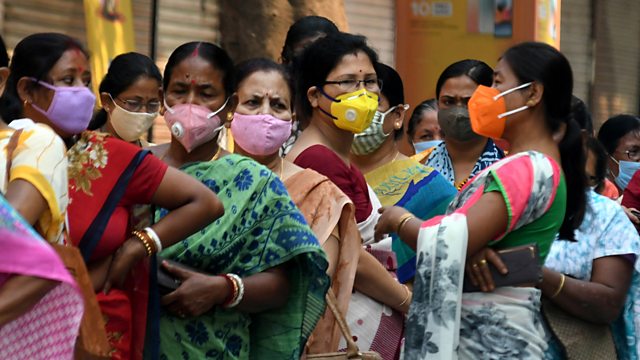Omicron: How will the variant affect us longterm?
A number of concerning mutations which have the potential to affect our immunity, the effectiveness of the current vaccines and the severity of illness for those how get infected.
Omicron, the latest Covid-19 variant, is spreading fast around the world. Originally reported in South Africa, it has now been found in over 40 countries. Scientists have reported a number of concerning mutations which have the potential to affect our immunity, the effectiveness of the current vaccines and the severity of illness for those how get infected.
Clare Bryant, Professor of Inate Immunity at the University of Cambridge, explains the implications of the latest findings on infection rates. She says that only high rates of vaccination will reduce the amount of virus in circulation, that vaccines will continue to be developed to counter new variants, and that it's vital that scientists continue to monitor the virus and have the courage to report the mutations they observe.
"One would hope it might mutate to a less virulent, less pathogenic or disease inducing variant but at the moment it’s not clear how that’s going to pan out in the future.
Photo: People in India queue for a Covid vaccine Credit: Getty Images
Duration:
This clip is from
More clips from The Inquiry
-
![]()
Ukraine war: How Russia benefits from Europe buying its gas
Duration: 03:47
-
![]()
How the Ukrainian resistance is exposing Russian weakness
Duration: 03:19
-
![]()
West African coups: What comes next?
Duration: 03:23






